Ford Kuga vs VW ID.7 - Differences and prices compared
Compare performance (243 HP vs 340 HP), boot space and price (34200 £ vs 46400 £ ) at a glance. Find out which car is the better choice for you – Ford Kuga or VW ID.7?
Costs and Efficiency:
Price and efficiency are key factors when choosing a car – and this is often where the real differences emerge.
Ford Kuga has a noticeable advantage in terms of price – it starts at 34200 £ , while the VW ID.7 costs 46400 £ . That’s a price difference of around 12133 £.
As for electric range, the VW ID.7 performs convincingly better – achieving up to 708 km, about 640 km more than the Ford Kuga.
Engine and Performance:
Under the bonnet, it becomes clear which model is tuned for sportiness and which one takes the lead when you hit the accelerator.
When it comes to engine power, the VW ID.7 has a clearly perceptible edge – offering 340 HP compared to 243 HP. That’s roughly 97 HP more horsepower.
In acceleration from 0 to 100 km/h, the VW ID.7 is clearly perceptible quicker – completing the sprint in 5.40 s, while the Ford Kuga takes 7.30 s. That’s about 1.90 s faster.
In terms of top speed, the Ford Kuga performs minimal better – reaching 200 km/h, while the VW ID.7 tops out at 180 km/h. The difference is around 20 km/h.
There’s also a difference in torque: VW ID.7 pulls decisively stronger with 679 Nm compared to 240 Nm. That’s about 439 Nm difference.
Space and Everyday Use:
Whether family car or daily driver – which one offers more room, flexibility and comfort?
Both vehicles offer seating for 5 people.
In curb weight, Ford Kuga is clearly lighter – 1526 kg compared to 2180 kg. The difference is around 654 kg.
In terms of boot space, the VW ID.7 offers evident more room – 532 L compared to 412 L. That’s a difference of about 120 L.
In maximum load capacity, the VW ID.7 performs hardly perceptible better – up to 1586 L, which is about 52 L more than the Ford Kuga.
When it comes to payload, Ford Kuga slightly takes the win – 550 kg compared to 465 kg. That’s a difference of about 85 kg.
Who comes out on top?
Overall, the VW ID.7 shows itself to be dominates this comparison and secures the title of DriveDuel Champion.
It convinces with the more balanced overall package and proves to be the more versatile choice for everyday use.
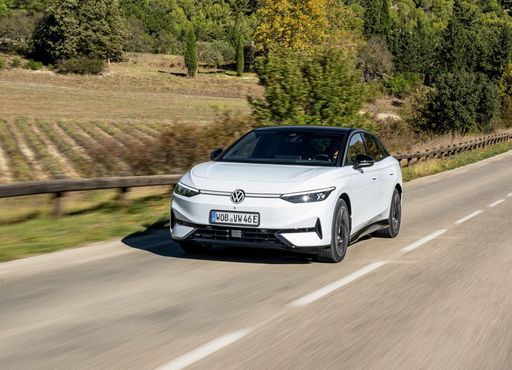
VW ID.7
Costs and Consumption
View detailed analysis
Engine and Performance
View detailed analysis
Dimensions and Body
View detailed analysis
Ford Kuga
The Kuga is Ford’s adaptable family SUV that blends usable space with a surprisingly lively driving character, making daily commutes and weekend escapes equally enjoyable. With smart interior packaging, an easy-to-use infotainment setup and composed road manners, it’s a sensible choice for buyers who want a bit of fun without the fuss.
details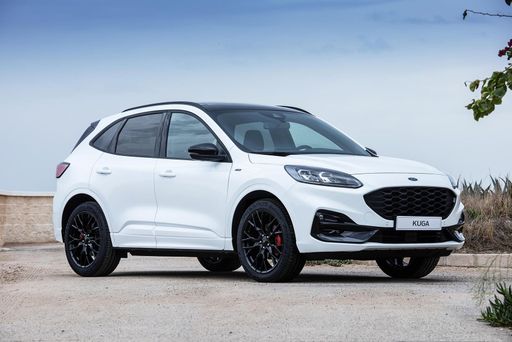
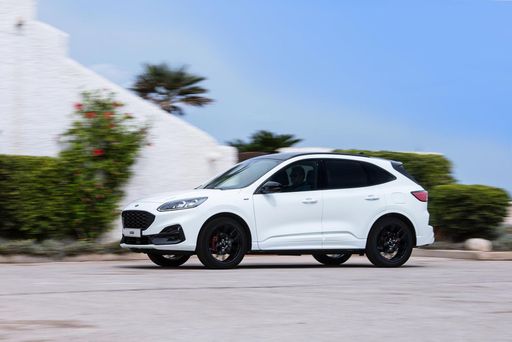

VW ID.7
VW ID.7 arrives as Volkswagen's electric grand tourer, pairing a low-slung, aerodynamic silhouette with a calm, understated interior that prioritizes comfort and space. It’s a sensible choice for buyers who want a relaxed, high-tech cruiser that covers motorway miles with poise rather than bravado.
details
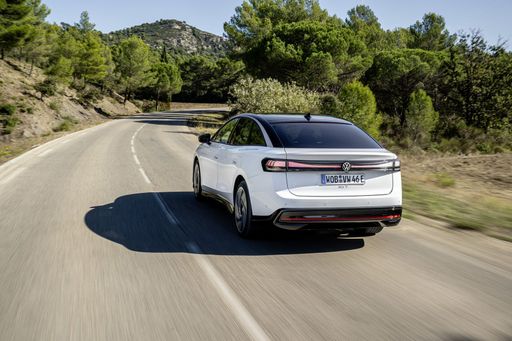
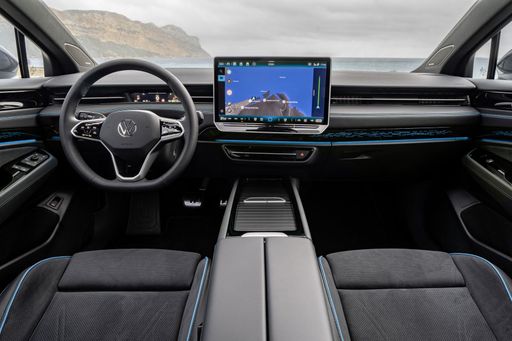
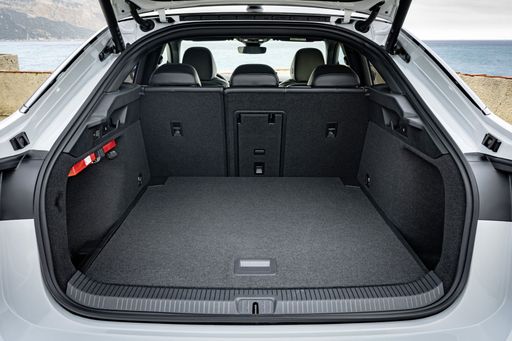
Costs and Consumption |
|
|---|---|
|
Price
34200 - 46300 £
|
Price
46400 - 54200 £
|
|
Consumption L/100km
2.8 - 6.8 L
|
Consumption L/100km
-
|
|
Consumption kWh/100km
-
|
Consumption kWh/100km
13.6 - 16.2 kWh
|
|
Electric Range
68 km
|
Electric Range
594 - 708 km
|
|
Battery Capacity
1.1 - 14.4 kWh
|
Battery Capacity
77 - 86 kWh
|
|
co2
55 - 154 g/km
|
co2
0 g/km
|
|
Fuel tank capacity
42 - 54 L
|
Fuel tank capacity
-
|
Dimensions and Body |
|
|---|---|
|
Body Type
SUV
|
Body Type
Hatchback
|
|
Seats
5
|
Seats
5
|
|
Doors
5
|
Doors
5
|
|
Curb weight
1526 - 1859 kg
|
Curb weight
2180 - 2325 kg
|
|
Trunk capacity
412 L
|
Trunk capacity
532 L
|
|
Length
4604 - 4645 mm
|
Length
4961 mm
|
|
Width
1882 mm
|
Width
1862 mm
|
|
Height
1673 - 1681 mm
|
Height
1535 - 1536 mm
|
|
Max trunk capacity
1534 L
|
Max trunk capacity
1586 L
|
|
Payload
541 - 550 kg
|
Payload
460 - 465 kg
|
Engine and Performance |
|
|---|---|
|
Engine Type
Petrol, Full Hybrid, Plugin Hybrid
|
Engine Type
Electric
|
|
Transmission
Manuel, Automatic
|
Transmission
Automatic
|
|
Transmission Detail
Manual Gearbox, CVT, Automatic Gearbox
|
Transmission Detail
Reduction Gearbox
|
|
Drive Type
Front-Wheel Drive, All-Wheel Drive
|
Drive Type
Rear-Wheel Drive, All-Wheel Drive
|
|
Power HP
150 - 243 HP
|
Power HP
286 - 340 HP
|
|
Acceleration 0-100km/h
7.3 - 9.9 s
|
Acceleration 0-100km/h
5.4 - 6.6 s
|
|
Max Speed
195 - 200 km/h
|
Max Speed
180 km/h
|
|
Torque
240 Nm
|
Torque
545 - 679 Nm
|
|
Number of Cylinders
3 - 4
|
Number of Cylinders
-
|
|
Power kW
111 - 178 kW
|
Power kW
210 - 250 kW
|
|
Engine capacity
1496 - 2488 cm3
|
Engine capacity
-
|
General |
|
|---|---|
|
Model Year
2025
|
Model Year
2023 - 2024
|
|
CO2 Efficiency Class
E, D, B
|
CO2 Efficiency Class
A
|
|
Brand
Ford
|
Brand
VW
|
What drivetrain options does the Ford Kuga have?
The Ford Kuga is available as Front-Wheel Drive or All-Wheel Drive.




